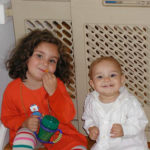I set a goal in January: by June, I would have a solid crummy-first-draft of my book done. I even went to a workshop on how to create a daily writing practice; notes in my backpack, pressed daily up against my laptop, give me a roadmap and a way out of every excuse. I have the tools. I have the story.
It is August, and I do not have the solid crummy-first-draft.
I have forty-one crummy-first draft chapters, all leading up to a moment in the plot of my story when the drama comes to a full boil and holds there for six months. No matter how many times I sit down at my computer to write past it, I find myself doing other writing, working, checking Facebook, or editing previous chapters. Sometimes, I sit instead with the book proposal and churn through another chunk.
In my book, I have just, perhaps for the first time, been firm and angry with a doctor. I was biting and honest, and he deserved it. All these years later, I know he deserved it, but here I am, unable to write past it because a part of me still hangs on that precipice, heart pounding, wondering if I just ruined my daughter’s best chance at health. All the other parts of me are clear: it worked, she’s fine, he really did deserve it.
This is the moment in my life I can point to most easily when I read about the ways in which women are taught not to take up too much space — physically, of course, but mostly emotionally and intellectually. A 2015 New York Times article by Sloane Crosley includes this paragraph:
One commonly posited theory, which informs everything from shampoo commercials to doctoral dissertations, is that being perceived as rude is so abhorrent to women that we need to make ourselves less obtrusive before we speak up. According to a 2010 study in the journal Psychological Science, “women have a lower threshold for what constitutes offensive behavior,” so are more likely to see a need for an apology in everyday situations. We are even apt to shoehorn apologies into instances where being direct is vital…
When I told my daughter’s doctor — after he’d misdiagnosed her to the tune of a dozen endoscopies, all unnecessary — that I refused to take her to another sort of therapy he recommended if the issue she faced could only be resolved by surgery, I can’t be sure if that I didn’t use the words “I’m sorry.” It might have come out in a snide way, “I’m sorry, but I’m NOT going to take my daughter…” I think it’s possible that I apologized before defending my child against the person who I considered partially responsible for the worst thing to ever happen to her.
What-if-they-think-I’m-rude is a thought that goes through my head constantly. A visiting friend of mine who has known me longer than almost anyone in my life, gently pointed out to me this summer that I begin a large percentage of things I say to my own husband with “I’m sorry, honey…”
What the hell is wrong with me?
It’s as if, this summer as I stare down this next chapter of the book, I’m struck by how it can be true that my daughter is ok, after I dared to question the authority of her doctor.
And she is ok. She turned thirteen yesterday, all legs and messy hair, fresh from her first summer camp experience a solo-plane-ride away. She came home from camp and ate three huge pieces of pizza, five apricots, and a large bowl of M&Ms for her first meal home, a volume of food that would have been a week’s worth of dinners five years ago. The fact that she is ok is no longer something I need to repeat in my head on a daily basis. It’s me who is left not-ok from the journey, me who is left feeling wounded and battered, me who can write only to a certain point in the story with doubling back and re-reading, re-writing, staring at the summer blueberries on the counter and remembering the days when that was all she would eat.
What if my “rude” comment had made the hospital fearful of a lawsuit, and then what if they’d refused to let her surgeon treat her? What if we’d had to fly far away for treatment, left our older daughter with others, missed weeks of work and had Sammi feeling anxious so far from home? What if the surgeon treated her differently because of what I said? What if we’d been denied some services? What if they’d told us not to do anything just so we would stay away, and Sammi died from food impaction in her wrecked esophagus because I’d had to open my angry, bitter mouth?
This summer has been extraordinarily busy; it’s true. Precious visits with visiting overseas friends, more work than usual, lots of travel, logistics to manage for both kids — all of these making it hard to find time daily to write. Most of all, though, I think I am keeping myself from the next moment out of fear.
New goal: December 2018. Deep breath, not sorry, moving on.
This has been a Finish the Sentence Friday post. This week, our prompt is “It was the summer of…” Kenya Johnson of Sporadically Yours and Kristi Campbell of Finding Ninee host each week.







You touch on a lot here – how we work around ourselves and our goals when they’re uncomfortable, your lingering PTSD regarding Sammi’s health, and the whole women apologizing thing. Why oh why DO WE DO IT!?!? Even when I make it through something by not apologizing, I get shaky and horribly nervous and and and… and then it’s fine. Ugh. Here’s to your next goal. No apologies. I have my crappy first draft of a first chapter only from two years ago and instead of sitting and writing through it, I’m hung up on not knowing what the story’s climax is. Dumb. I’m sure it’ll become more clear as I develop characters, but I don’t sit and just write.
A friend of mine who is actively taking classes and workshops these days mentioned to me recently that one of her teachers suggested she “write into” a painful story. It struck me as a profound thought. I’m working on it. You can use that too — free advice from someone I’ve never even met! 🙂
Also so happy that camp was a raging success! 🙂
When the time is right, you will be able to move on with your writing. You and your daughter have been through a lot.
Thanks, Pat.
“I will patiently fulfil my destiny.”
“I will take as long as it takes to reach my life’s purpose”
These are phrases I repeat in my head over and over and over to get through that deep, real fear and dread that those book(s) aren’t getting written fast enough.
You are such a talented wordsmith, I’m sure that all this gnashing is part of the book birthing process, deep breaths and keep laboring.
I look forward to the results.
“I will take as long as it takes…” I agree, except that details are starting to fall away as time passes. Thank you for your kind words. I look forward to the results too!
Well, you are definitely an incredible writer so I’m sure that when you do finish writing that book, it’ll be amazing! I went on that journey with you in this post and really felt the part about apologizing. I’m ALWAYS apologizing, and it cheapens real, needed apologies to just throw around “I’m sorry” so I’ve recently started working on that too. I can’t let fear of being rude rule my life. Thank you for reminding me to keep working at it. ?
Also, I’m glad your daughter had a great time at camp and ate lots of food. As someone who has had digestive issues most of my life, I sympathize!!
Sarah, thank you for writing to me here! We all say “I’m sorry” too often. Even Barbie (yes, the doll) made a video blog post about it recently, which I showed my daughter.
And thank you for understanding about the glory of watching her eat well. It never gets old!
You will eventually move past this point of anger and hurt.
I totally understand your response starting or ending with I’m sorry”. That’s how women are taught to react. This is me too.
I think you’re right. We should stop, though!
You did what you could, and what you had to do even when you thought you might not be able to every day. Including being firm and angry with that doctor. And it’s scary to think of what might have been. Of course it’s hard to look at all that again now. Your reflection of what is going on for you is so honest and brave, like so much you have done. You can trust your Self, take the time you need to sit with this. And (you know I am going to say this eventually) you can use tools like Tapping to move the energy around “what-if-they-think-I’m-rude” and the other, terrible “what-ifs,” including writing further. The beauty of this book is how its larger purpose motivates you to accept the opportunities it offers for your healing, even if they feel so scary and challenging. You are an inspiration, thank you for being willing to share your vulnerability here.
I “hear” what you are saying here, Andrea. I wonder sometimes if the babbling what-if voices keep me from being too reckless (my instinct!) or hold me back from being honest in a more productive way. For readers here who don’t know me outside the internet, Andrea was in the room when I made that comment to that doctor, over the phone!
I’m so glad that you didn’t have to deal with your what ifs. You have an amazing story to tell. I don’t know if the workshops tell you this is our note, but when you really get on a roll with writing, you’ll make time for it places you didn’t know you had. Same with reading, working out and any of those things we do we don’t feel like we have time for.
That’s true! When I had to start, I found the time. 🙂
I love her post camp dinner! And I had a lot of trauma regarding my son’s health when he was a baby and boy was I .. reactive to doctors after that. For awhile.
[…] to treat it as such for myself. In the months leading up to the retreat, as I neared the end of the book I’m writing about parenting my daughter through her medical mystery, trauma, and healing, I found myself held […]